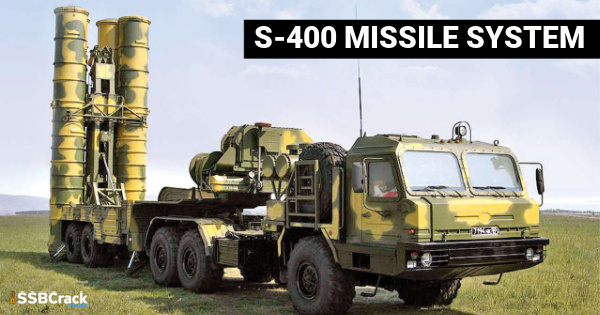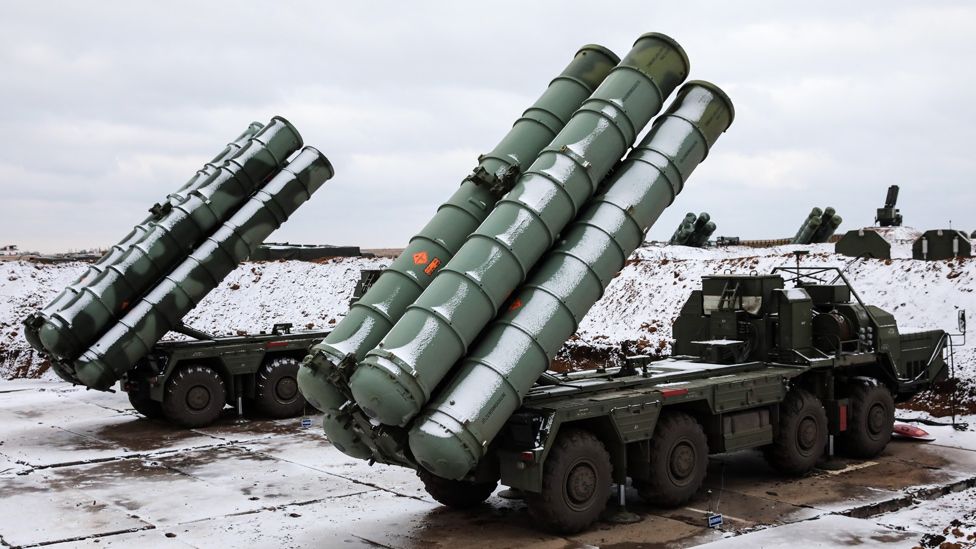India is constantly working to upgrade its weapon systems either through building it themselves or through acquiring them from our defense partner nations. Media has been covering the delivery of S-400 defence systems recently. We present defence aspirants all they need to know about S-400 missile systems.
S-400?
The S-400 Triumf is one of the world’s most modern and powerful air defense systems, capable of defending against practically any type of aerial assault, including but not limited to drones, missiles, rockets, and even fighter planes. The system is a long-range surface-to-air missile system designed to operate as a shield over a certain area.
The S-400, dubbed SA-21 Growler by NATO and created by Russia’s Almaz Central Design Bureau, can fight invading aircraft, unmanned aerial vehicles, cruise missiles, and ballistic missiles. It has “surfaced as an anti-access/area denial (A2/AD) tool meant to defend military, political, and economic assets against aerial strikes,” according to a report. Each battery features a command-and-control system, a surveillance radar, and an engagement radar, as well as four lunch trucks. Since 1993, Russia has been working on the S-400. Russia deployed it in 2007 after the testing which began in 1999-2000.
How does it eliminate threats?
Short-range missiles with a range of up to 40 kilometers, medium-range missiles with a range of up to 120 kilometers, long-range 48N6 missiles with a range of up to 250 kilometers, and very-long-range 40N6E missiles with a range of up to 400 kilometers and a flight altitude of 180 kilometers are included in the system. It can track up to 160 things in a 600-kilometer range at once and target 72 targets in a 400-kilometer range.The S-400 detects an airborne danger approaching the air defence bubble (the region it is responsible for protecting), calculates the threat’s trajectory, and launches missiles to neutralize it. It is equipped with long-range surveillance radars that transmit data to the command vehicle. The command vehicle authorizes a missile launch after locating the target.
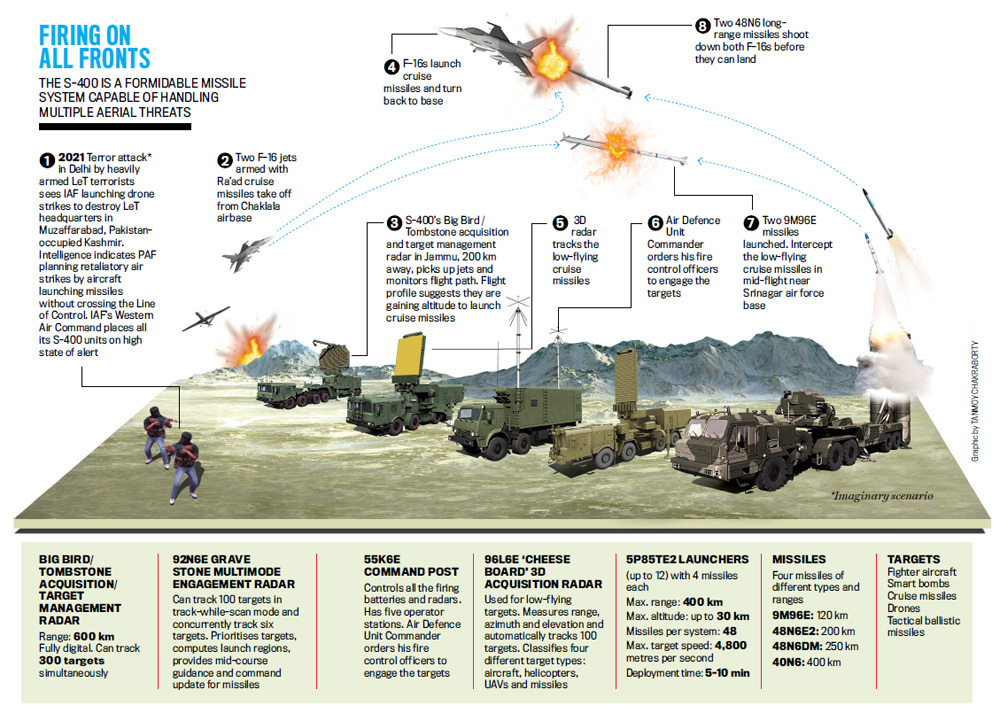
What can S-400 do for India?
To defend against missiles or fighter planes fired from China or Pakistan. From the standpoint of either capability or cost, there is no other system capable of servicing the Indian Air Force’s long-range air defense objectives. The S-400 can constrict the adversary’s aviation operations even within their own territory, according to the report, a capacity unmatched by usual Western weapons given up as counterparts. The S-400 system was contrasted to the American MIM-104 Patriot system, which is “mainly oriented toward missile defense with less concentration on the primary anti-aircraft function,” according to the research. It claims that the S-400 can be deployed in five minutes, against 25 minutes for the Patriot (PAC-3). It travels at a speed of 4.8 km/s against 1.38 km/s. It’s also less expensive, with a per-battery cost of around $500 million against $1 billion for the Patriot.
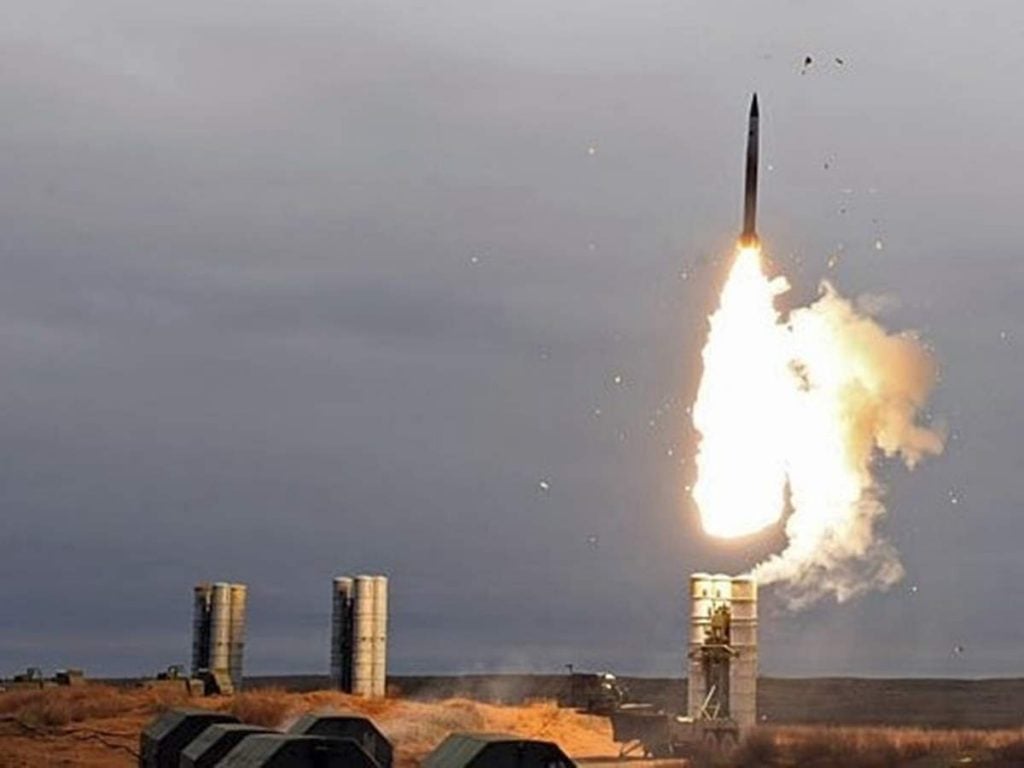
The Deal
In October 2018, India and Russia agreed to buy five S-400 regiments for $5.43 billion. Two Indian Air Force (IAF) teams have already been trained on the system by Almaz Antey in Russia, ahead of the expected deliveries. Because of many large-scale accords, India and Russia’s defense trade reached $15 billion in the previous three years. The agreement was initially delayed as both parties attempted to secure money from US sanctions. “For example, we secure our financial institutions by processing payments in national currencies,” said Victor Kladov, head of international cooperation and regional strategy at Rostec Corporation, in an August interview with The Hindu newspaper. The S-400, according to IAF Chiefs in the past, will be a game changer if inducted, somewhat compensating for the force’s diminishing fighter numbers, especially in the face of a rising two-front threat from China and Pakistan.
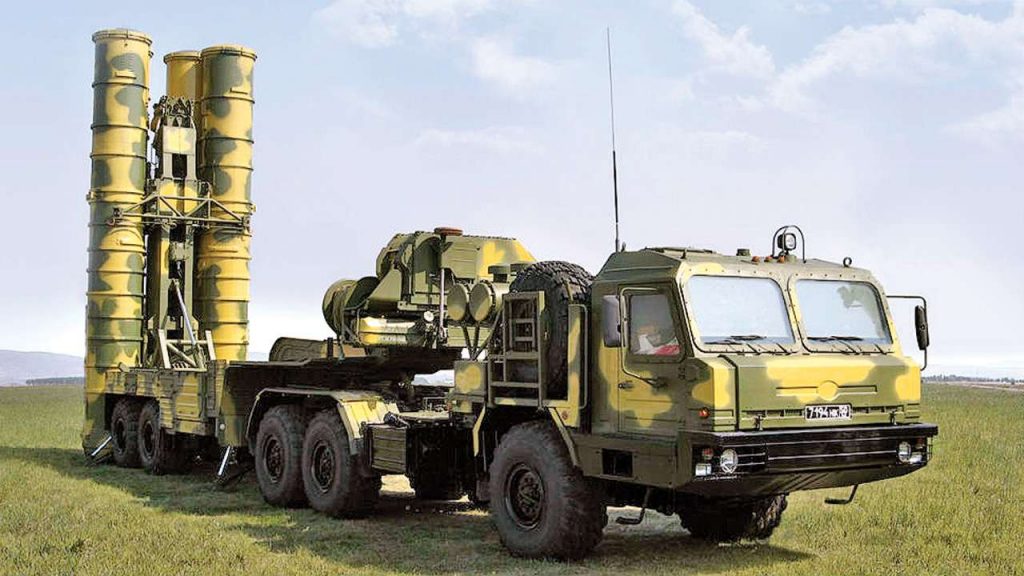
Delivery
On December 6, 2021, during Putin’s visit to New Delhi, India’s foreign secretary Harsh Vardhan Shringla announced that delivery of Russia’s long-range S-400 surface-to-air missile defense system had begun. “Russia has started providing S-400 air defense systems to India, and the first division will be delivered by the end of 2021,” Dmitry Shugaev, Director of Russia’s Federal Service for Military-Technical Cooperation, stated in Dubai. By the end of the year, India will have received the first of the five units it purchased. In October 2018, India placed an order for five units. The delivery was supposed to start in 24 months, but it has been postponed for a variety of reasons. The administration told Parliament in July 2019, around the time India paid Russia the first payment of roughly $800 million, that all units would likely be delivered by April 2023.
A truly global weapons system
It has piqued the curiosity of a number of countries. Belarus ordered it in 2007 and received the first shipment in 2016. Algeria purchased it in 2014, and the first unit arrived in 2015. In December 2017, Turkey signed an order with Russia, and delivery began in July 2019. Egypt, Saudi Arabia, and Qatar have shown an interest as well. India is concerned because China made an order in March 2014, with delivery beginning in 2018. China is said to have placed the S-400 along the Line of Actual Control during the standoff in eastern Ladakh, which began in May 2020 and is still ongoing.
Conclusion
There is no doubt that the threats our nation faces are multifarious. Be it the militants of Kashmir or the Chinese forces, India has to stay strong to ward off these threats. For that purpose we have to take steps to upgrade our arsenal constantly. We have to acquire state of the art weaponry, aircrafts and aerial defence systems. The Government of India has been moving in that direction for some time now. After the delivery of Rafale planes, now the delivery of s-400 has begun. Without a doubt, one can say that this deal greatly enhances our capabilities when it comes to thwarting aerial threats from China or Pakistan or anyone for that matter. Now let us wait for the delivery of all the units as a formidable addition to our defence systems.
